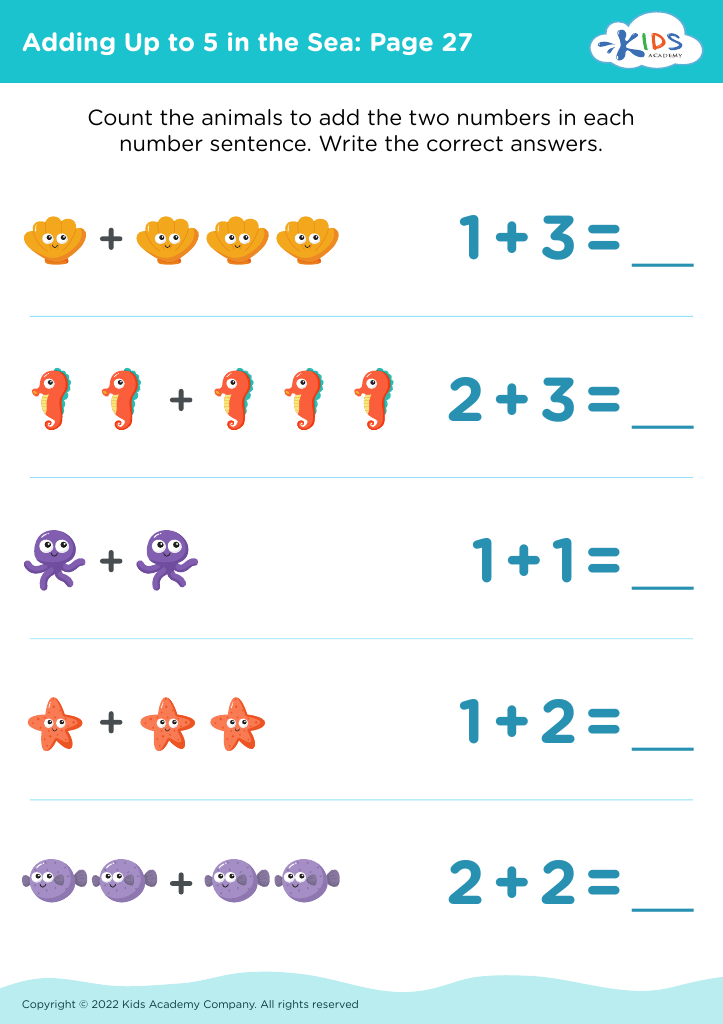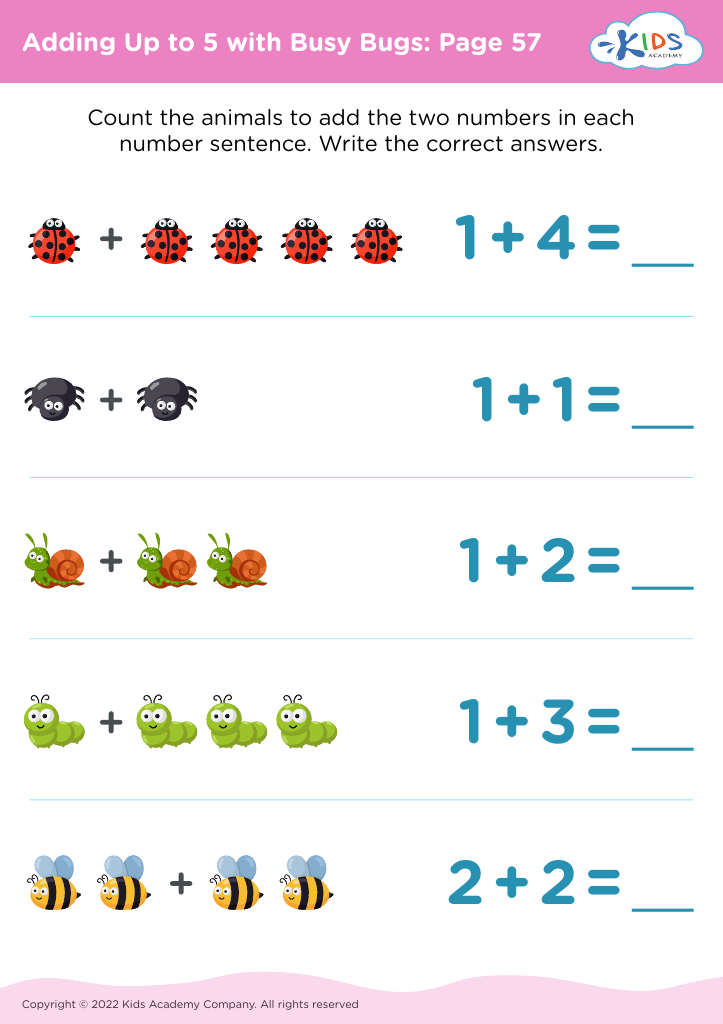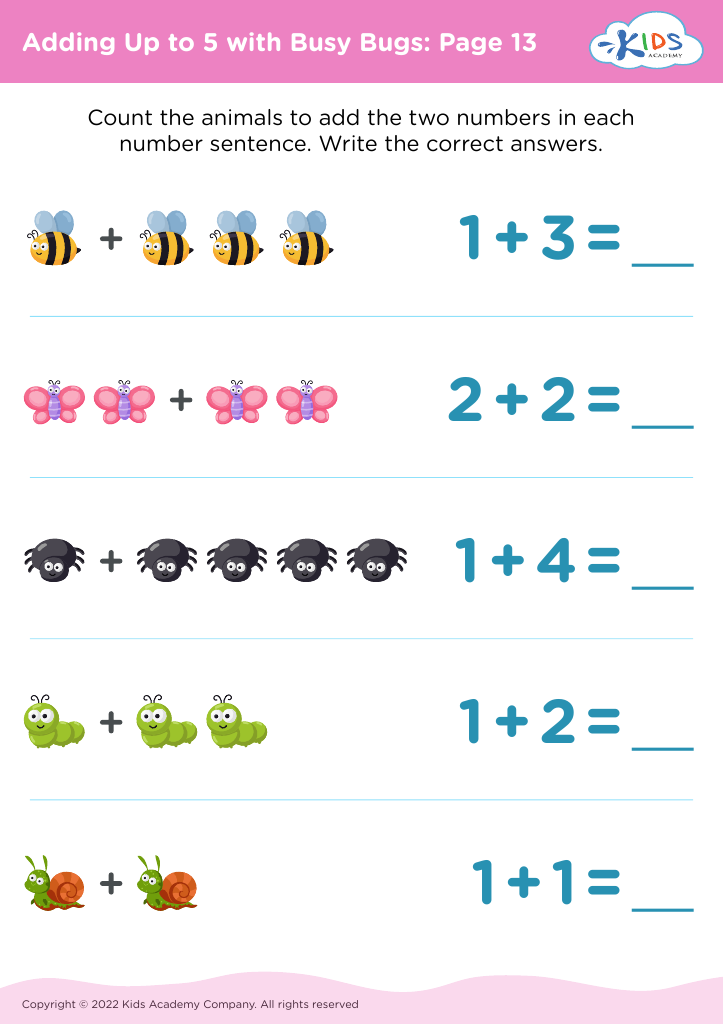Understanding numbers Addition Worksheets
4 filtered results
-
From - To
Explore our "Understanding Numbers Addition Worksheets," specifically designed to help young learners build a solid foundation in arithmetic. These engaging worksheets guide children through the fundamental concepts of numbers and addition, reinforcing their understanding in a fun, interactive way. With varied exercises, including number recognition, simple addition problems, and visual aids, these resources cater to different learning styles. Ideal for early grade teachers and parents, the worksheets offer valuable practice to enhance students' confidence and skills in math. Foster a love for learning and mathematics with our comprehensive and easy-to-use addition worksheets! Start your child’s math journey today!
Understanding numbers and addition is crucial for children’s early mathematical development, making it essential for parents and teachers to prioritize this concept. Mastery of basic addition fosters a strong numerical foundation that is necessary for more advanced math skills in later grades. When children grasp how numbers relate to one another, they develop critical thinking and problem-solving abilities essential for everyday situations, such as managing money or measuring ingredients during cooking.
Moreover, since addition is a building block of math, competency in this area increases confidence and encourages a positive attitude towards learning, mitigating math phobia in the future. Parents and teachers play a pivotal role by creating engaging and interactive experiences that link addition to real-life scenarios, reinforcing its relevance.
Furthermore, early comprehension of numbers helps identify any learning difficulties. Early intervention can be provided, guiding students toward success. Overall, prioritizing understanding of numbers and addition equips children with essential tools for lifelong learning and effective participation in society. Investing time and energy in these foundational skills ensures that children progress smoothly through their education while developing a love for math that can last a lifetime.




















